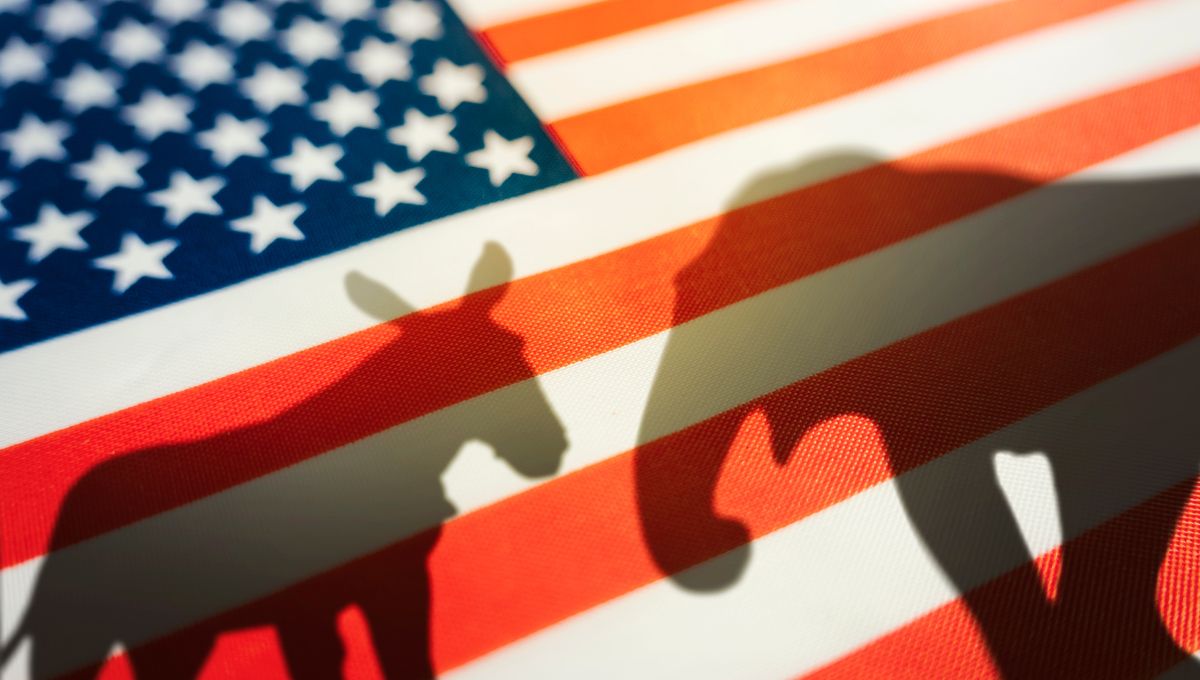
US citizens are worryingly poor at differentiating between fact and political opinion. This may not be the news you wanted to hear in an election year, but is the finding of new research led by scholars from the University of Illinois Urbana-Champaign’s Department of Political Science.
“The capacity to differentiate between a statement of opinion and a statement of fact is vital for citizens to manage the flood of political information they receive on any given day,” said co-author Professor Jeffery J. Mondak in a statement.
In the age of polarizing discourse on social media, viral mis- and disinformation, and AI-generated fakery, sifting through to the facts of a political story is a challenging business. But Mondak and co-author Matthew Mettler believe the problems discerning truth from fiction start even further up the chain.
“There’s a huge amount of research on misinformation. But what we found is that, even before we get to the stage of labeling something misinformation, people often have trouble discerning the difference between statements of fact and opinion,” Mondak said.
To investigate, study participants were asked to categorize 12 statements about current events as either “fact” or “opinion”. An example of a factual statement was “President Barack Obama was born in the United States,” whereas one of the statements of opinion was “Democracy is the greatest form of government.” The survey was conducted online between March 9 and March 14, 2019, and included 2,500 people from across the country.
Almost half of the respondents, 45.7 percent, performed this task no better than pure chance.
Amongst the people who were more successful at the task, some commonalities emerged. Having greater knowledge of both current events and civics more generally, as well as a higher level of education and stronger cognitive abilities, were all associated with a modest performance improvement.
The biggest factor influencing incorrect responses was political partisanship.
“As partisan political views grow more polarized, Democrats and Republicans both tend to construct an alternate reality in which they report that their side has marshaled the facts and the other side merely has opinions,” Mondak explained.
“It’s not merely the case that there were a lot of incorrect responses, but that many of the errors were not random. They were systematic errors because many respondents formed their answers to fit their partisan narrative.”
The problem, as Mettler put it, is that partisan bias “distorts people’s capacity to reason their way through these statements.” And the way that news reporting is changing is not helping matters. “The trend nowadays, especially on cable news, is more of a blurring of opinion and fact,” added Mondak.
According to these findings, what we’re left with is a substantial proportion of the population who not only disagree with each other on the facts of political issues, they also disagree on the very definition of what constitutes a fact in the first place.
Mondak and Mettler are concerned that this leaves people susceptible to being manipulated, and less open to efforts to correct misinformation, such as by fact-checking organizations (or your favorite science news website).
“[A] consensus of ‘We can agree to disagree’ can emerge even for questions of indisputable fact. Well, you can’t just ‘Agree to disagree’ that 2 + 2 = 22,” Mondak explained.
This all paints quite a bleak picture, but is there anything we can do?
In their paper, the pair stress that while fact-checking can be curative, it’s not preventative. For that, we must go right back to school, when people are first taught the difference between fact and opinion. By consistently reinforcing when their reporting is based on factual statements and when they’re sharing opinions, media organizations can continue to cement this distinction in the minds of the public.
Otherwise, the authors conclude, being duped by misinformation is almost an inevitability: “Faulty fact-opinion differentiation leaves individuals misinformed not because they are wrong on the facts but because they are wrong on what facts are.”
The study is published in the Harvard Kennedy School Misinformation Review.
Source Link: US Citizens Are Strikingly Bad At Sorting Facts From Opinions